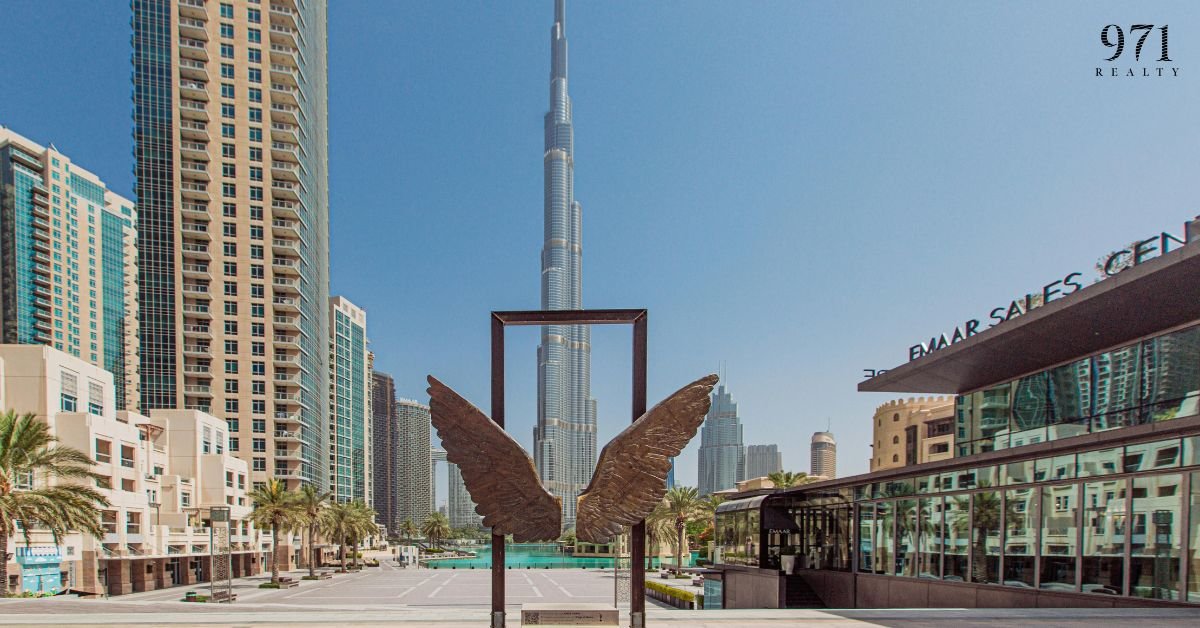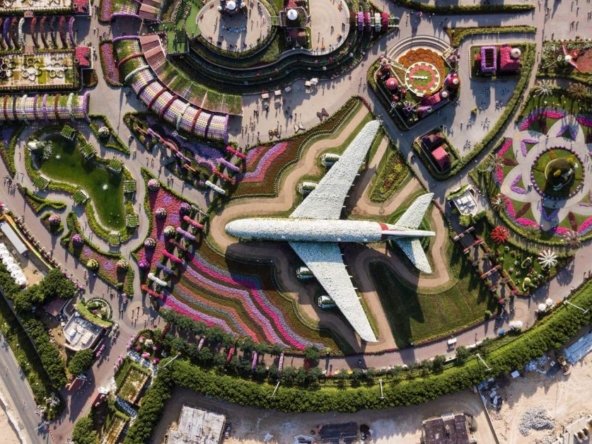Dreaming of a life in the sun-drenched, futuristic city of Dubai? You’re not alone. Every year, thousands are drawn by its tax-free salaries, unparalleled career opportunities, and dazzling lifestyle. But before you pack your bags, one critical question demands an answer: What is the real cost of living in Dubai?
The truth is, Dubai can be as affordable or as expensive as you make it. This comprehensive guide will strip away the mystery and give you a clear, honest breakdown of the actual cost of living in Dubai you can expect. We’ll cover everything from housing and schooling to your weekly grocery shop, empowering you to make a smart, informed decision about your move.
Is Dubai an Expensive City to Live In?
This is the first question on everyone’s mind, and the answer isn’t simple. Compared to global hubs like New York, London, or Singapore, Dubai can be more affordable in certain areas, particularly transportation (fuel is cheap) and utilities. However, housing and schooling are often on par with or even exceed costs in other major cities.
Your lifestyle is the ultimate decider. Dining at five-star restaurants weekly, living in a luxury apartment on Palm Jumeirah, and owning a fleet of supercars will make Dubai one of the most expensive cities on earth. However, a comfortable, balanced life in a family-friendly community like Discovery Gardens or Al Barsha is entirely achievable on a solid professional salary. The key is managing expectations and budgeting accurately.
Breaking Down the Key Expenses: A Detailed Look of Cost of Living in Dubai
Let’s dive into the numbers to understand more clearly the cost of living in Dubai. Here’s a category-by-category analysis of the typical monthly costs for an expat individual or family.
1. Housing and Accommodation Costs (Your Biggest Expense)
Rent is almost always your largest monthly outgoing. Prices vary dramatically based on location, size, and quality. Rent is typically paid annually or via several post-dated cheques (e.g., 1, 2, or 4 cheques).
- Average Rent for a 1-Bedroom Apartment:
- Premium Areas (Downtown Dubai, Dubai Marina, Palm Jumeirah): AED 90,000 – AED 140,000+ per year (AED 7,500 – AED 11,600+ per month).
- Popular Family Areas (Jumeirah Village Circle (JVC), Al Barsha, Sports City): AED 55,000 – AED 80,000 per year (AED 4,600 – AED 6,600 per month).
- More Affordable Areas (Deira, Bur Dubai, Discovery Gardens): AED 40,000 – AED 60,000 per year (AED 3,300 – AED 5,000 per month).
- Additional Housing Costs:
- Security Deposit: Usually 5% of the annual rent, refundable at the end of the tenancy.
- Agency Fee: Typically 5% of the annual rent, paid to the real estate agent.
- DEWA (Dubai Electricity & Water Authority) Connection/Deposit: Around AED 2,000 for an apartment, which includes a connection fee and a security deposit.
- Monthly DEWA Bills: For a 1-2 bedroom apartment, expect AED 500 – AED 1,200 per month, depending on usage and season (summer AC costs are higher).
- Chiller/Cooling Charges: In some communities, air conditioning is provided by a district cooling provider (e.g., Empower). This can be an additional charge of AED 300 – AED 800 per month.
- Housing Fee: A municipal fee (typically 5% of the annual rent) added to your monthly DEWA bill.
2. Education and School Fees
If you have children, schooling will be your second-largest expense. Dubai has a wide range of private schools following British, American, IB, Indian, and other curricula. Fees are significant.
- Annual School Fees per Child:
- Tier 1 Premium Schools (e.g., GEMS World Academy, Nord Anglia): AED 80,000 – AED 120,000+.
- Mid-Range Reputable Schools (e.g., GEMS Wellington Academy, Dovecote Green): AED 40,000 – AED 70,000.
- More Affordable Schools (e.g., Indian curriculum schools): AED 15,000 – AED 35,000.
- Additional Costs:
Registration fees, school uniforms, books, and transportation can add thousands of dirhams per year.
3. Transportation and Car Costs
While Dubai has a modern and efficient metro, tram, and bus system, many residents prefer the convenience of a car.
- Public Transport:
- Nol Card (metro/bus/tram): A monthly pass for two zones (which covers most commutes) costs around AED 350.
- Taxi: Starting fare is AED 12, with AED 1.97 per kilometer. Careem and Uber are also widely used but are more expensive.
- Owning a Car:
- Fuel: Significantly cheaper than in many Western countries. A liter of petrol costs around AED 3.20 (approx. $0.87).
- Car Insurance: Comprehensive insurance for a mid-size sedan can range from AED 1,500 – AED 4,000 annually.
- Salik (Toll Gates): Each pass through a toll gate costs AED 4. A monthly budget of AED 100 – AED 300 is common for regular commuters.
- Registration & Testing: Annual vehicle renewal costs around AED 400-500.
4. Daily Living Expenses: Food, Utilities, and Leisure
This is where your budget can be flexible.
- Groceries: A monthly grocery bill for a single person can range from AED 800 – AED 1,500. For a family of four, expect AED 2,500 – AED 4,500+. Shopping at local supermarkets like Carrefour, Lulu, or Waitrose (more expensive) is common.
- Dining Out:
- Inexpensive Meal: AED 30 – AED 50 at a casual eatery.
- Three-Course Meal for Two at a Mid-Range Restaurant: AED 200 – AED 400.
- Internet and Mobile Plans:
- Home Internet (Etisalat/du): Packages start from around AED 300 per month.
- Mobile Plan: A postpaid plan with generous data costs around AED 200 – AED 400 per month.
- Leisure & Entertainment:
- Cinema Ticket: AED 50 – AED 80.
- Brunch (a popular Dubai weekend activity): AED 200 – AED 600+.
- Gym Membership: AED 300 – AED 600 per month for a standard gym.
Sample Monthly Budget Scenarios
To put it all together, here are two realistic monthly budget scenarios (excluding annual one-time costs like agency fees).
Scenario 1: Single Professional Living in JVC
- Rent (1-bed apartment): AED 5,500
- DEWA & Chiller: AED 900
- Internet/Mobile: AED 500
- Groceries: AED 1,200
- Dining/Leisure: AED 1,500
- Transport (Car fuel, Salik, insurance): AED 1,000
- Miscellaneous: AED 800
- Estimated Total: AED 11,400 per month
Scenario 2: Family of Four Living in Al Barsha
- Rent (2-bed apartment): AED 7,000
- DEWA & Chiller: AED 1,200
- School Fees (2 children, mid-range): AED 9,000 (averaged monthly)
- Internet/Mobile: AED 600
- Groceries: AED 3,500
- Dining/Leisure: AED 2,500
- Transport (Car): AED 1,500
- Miscellaneous: AED 1,700
- Estimated Total: AED 27,000 per month
Money-Saving Tips for Living in Dubai
- Choose Your Neighborhood Wisely: This is the biggest lever for controlling costs. Consider communities slightly further from the main hotspots.
- Negotiate Your Rent: The market can be tenant-friendly. Always negotiate the rent and the number of payment cheques.
- Use Group Buying Apps: Websites like Cobone and Groupon offer great deals on everything from groceries to fine dining.
- Shop During Sales: Dubai has mega-sales like the Dubai Shopping Festival and Dubai Summer Surprises.
- Take Advantage of Free Activities: Enjoy the public beaches, parks, and countless community events.
Read More: Moving to Dubai from Canada
Conclusion: Is It Worth It?
The cost of living in Dubai is high, but it’s matched by a high quality of life, safety, world-class infrastructure, and incredible opportunities. The “tax-free” salary is a major draw, but it’s essential to run the numbers based on your personal and family circumstances. A salary that sounds impressive on paper must be weighed against the reality of housing, schooling, and lifestyle costs.
By doing your research and creating a detailed budget, you can build a prosperous and enjoyable life in this dynamic city.
Ready to make your move to Dubai? Our team of relocation experts is here to help you navigate the rental market, school selections, and visa process. Contact us today for a personalized consultation and take the first step towards your new life in the UAE.
Related FAQs: Cost of Living in Dubai
What is a good salary to live comfortably in Dubai?
Cost of living in Dubai is much higher then some other countries. For a single person, a monthly salary of AED 15,000+ can allow for a comfortable lifestyle, including a nice studio/1-bed apartment, a car, and leisure activities. For a family of four, a combined monthly income of AED 30,000+ is recommended to cover housing, schooling, and a good standard of living.
Is healthcare expensive in Dubai?
All residents are legally required to have health insurance. Most employers provide a basic plan. The cost and coverage vary widely. You can expect to pay anywhere from AED 5,000 to AED 20,000+ annually for a comprehensive personal insurance plan, depending on your age and coverage needs.
How much does it cost to move to Dubai initially?
The initial setup costs are significant. You should budget for:
- First-year rent (often paid upfront or in 2-4 cheques).
- Security deposit (5% of rent).
- Agency fee (5% of rent).
- Utility deposits (approx. AED 2,000).
- Airfare and initial accommodation (e.g., hotel or serviced apartment for 2-4 weeks).
A safe initial budget for a single person is AED 30,000 – AED 50,000, and for a family, it can be AED 80,000+.
Can you live in Dubai without a car?
Yes, especially if you live and work near a metro station. Areas like Dubai Marina, JLT, and Business Bay are very metro-friendly. However, for maximum flexibility and convenience, especially with a family, most residents prefer to own a car.
Is there any income tax in Dubai?
There is currently no personal income tax on salaries earned in Dubai. This is a primary financial benefit. However, a 9% corporate tax was introduced in 2023, but this does not apply to individual employment income. A 5% Value Added Tax (VAT) is applied to most goods and services.







